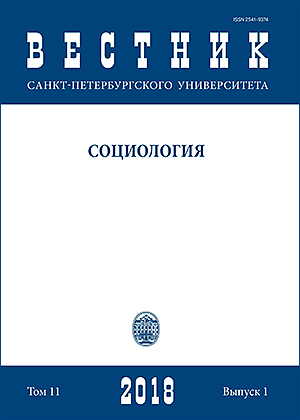Paradoxes of genetic testing for cancer susceptibility: Empowerment and risk
DOI:
https://doi.org/10.21638//11701/spbu12.2018.108Abstract
The 21st century is recognized as the age of genetics due to significant discoveries that have revolutionized the understanding of the human genome. This turn largely determined the possibilities of modern preventive medicine, including the ability to diagnose the likelihood of disease on the basis of analysis of human genes. For cancer treatment, a serious disease recognized as socially significant, these discoveries provided new resources in the fight against the disease, which, ultimately, should lead to a reduction in morbidity and mortality. However, the emergence of this treatment technology has offered new questions related to ethical, social, economic, cultural and other aspects of genetic testing for cancer susceptibility. The article is devoted to the social aspects of genetic testing for susceptibility to breast cancer (mutations in the BRCA1/2 genes). Readers are offered a brief overview of the existing research areas, and also proposed an analysis of the paradoxes arising due to the development of genetic testing technology.
Keywords:
empowerment, risk, oncology, genetic testing, cancer susceptibility, breast cancer
Downloads
References
References
Downloads
Published
How to Cite
Issue
Section
License
Articles of "Vestnik of Saint Petersburg University. Sociology" are open access distributed under the terms of the License Agreement with Saint Petersburg State University, which permits to the authors unrestricted distribution and self-archiving free of charge.




